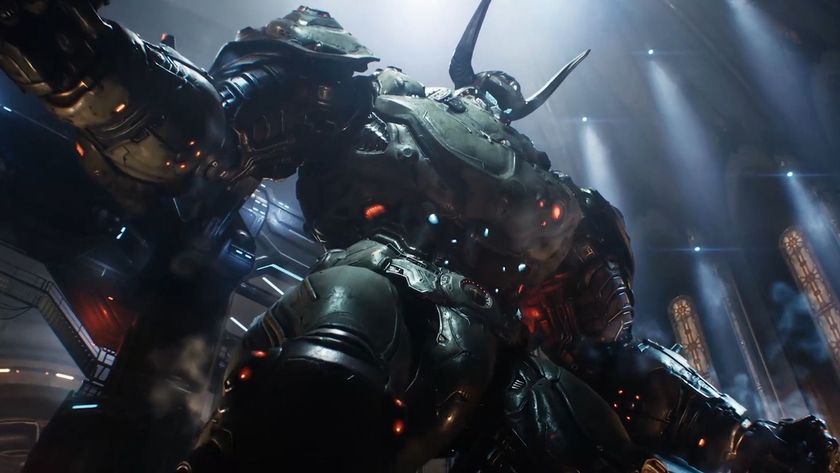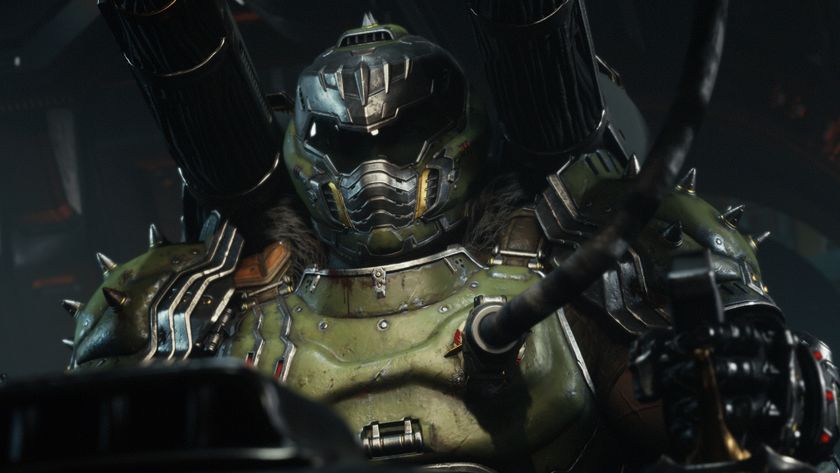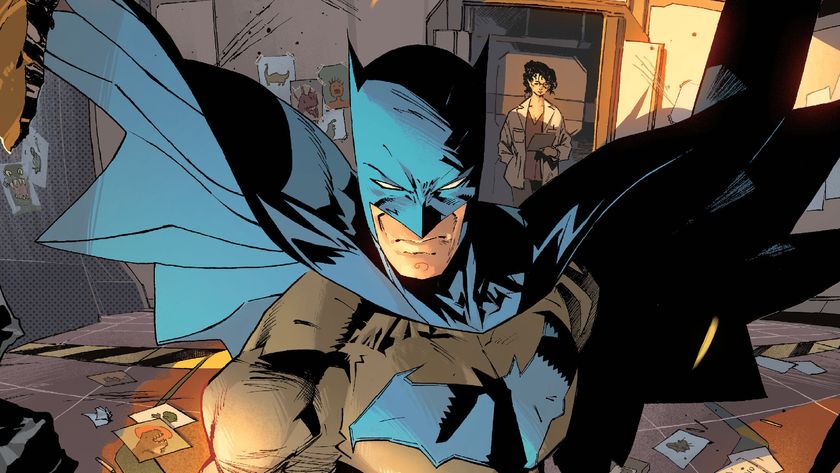15 games that reward you for NOT playing them
Discover the games that dish out a valuable life-lesson by rewarding you for doing nothing. Wait… WHAT?
Games demand your attention. They constantly ask you to interact, look at what they're showing you, to absorb information, to respond and react, to press X to feel emotions and... sometimes - just sometimes - to do nothing at all. And those are the titles were interested in right here. Sure, the point of games it to play them. They're an active experience, not a passive one. However, it's occasionally beneficial to actually NOT play a game; to put down the controller and just do absolutely nothing. With the following 15 titles you'll actually get some kind of reward for doing exactly that.
Far Cry 4 asks politely - then keeps its word
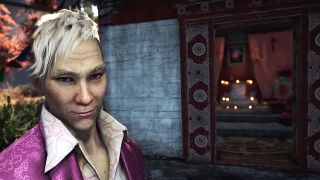
Reams and reams have already been written about the absurd fallacies that govern our games - those oddball behaviours and mad practices that seem so wonderfully at home inside a virtual setting, and yet so massively inappropriate beyond it. Far Cry 4 evidently takes issue with these sorts of unthinking and unrealistic reactions. Case in point - the game's early doings, in which the villainous Pagan Min appears to kidnap protagonist Ajay and stuff him into an easily escaped room. Now, given the man's obvious penchant for violence, as well as his ominous promise to return, it's hardly surprising to find that most quickly attempt to scarper. But what if you don't run? What if - instead of scurrying off to go native and/or ride around on massive murder elephants - you simply decide to sit it out and wait? Does Min return, torture tools in hand, ready to rend flesh? Actually no. Instead we're treated to what is perhaps the most realistically dull conclusion of all time. You sit around for 15 minutes, Min duly returns and kindly escorts you to your original destination. Game over. That's it. I guess he's not such a terrible genocidal dictator after all Just a weird uncle really. Very weird, mind, but still...
Skyrim's Well Rested XP
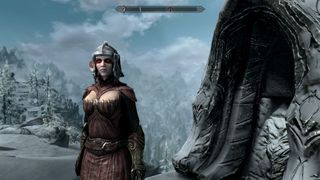
With over 200 hours of main game, plus several hundred more hours of stuff in the DLC, there is a hell of a lot to see and do in Skyrim Special Edition. You'd be forgiven for just constantly getting stuck into it, forgoing sleep, bathroom breaks, food, and all the other pathetic things regular humans need. But stop for a second. Breathe. Make your character sleep for eight or so hours in a comfy bed. Take a screen break yourself. Why? Because when your character sleeps in a bed they own you receive a 'Well Rested' bonus, which grants an extra 10% XP while it lasts. That means by taking a break for a few seconds, you have to work 10% less frantically to level up your character. That's just common sense, right there.
Final Fantasy 5 rewards pacifism
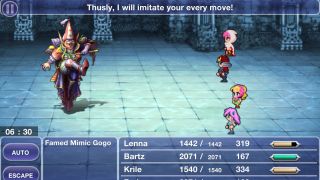
From the 'loving mother's school of devastating fight advice', it's Final Fantasy 5 and the Gogo boss monster - aka the one that you beat by doing nothing precisely nothing. You see the thing about Gogo is that he's actually a mimic, meaning that he'll only attack so long as you choose to attack him. Attempt to duke it out and he'll unleash wave after wave of unstoppable carnage, but opt instead to heed his sagely warning - 'to do as he does' - and Gogo will eventually relent, granting you a prize before scampering off elsewhere. Good thing too, as trying to best old Gogo via conventional means, i.e. - the exact way that anyone would after 30-plus hours of furious fiend blasting - is considered to be a truly difficult feat. Gogo can annihilate the entire party in just three turns, and must realistically be defeated with the help of a high-level muting buff, lest this monstrous mime work up to his uber destructive meteor attack. The lesson here: not every boss taunt ought to be ignored. Although, if you're tackling Final Fantasy 15... best ignore most of the taunts.
Metal Gear Solid 3 ages in real-time
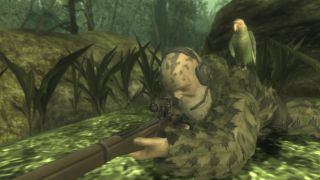
Hideo Kojima uses every tool at his disposal when making Metal Gear Solid games, and that includes messing with the in-game clock in ways most players will never notice. Metal Gear Solid 3 might be the best at finding unpredictable ways to grant players advantages for turning off the game. For instance, if Snake has taken too much damage, just take a long break from the campaign and his health and stamina return to normal. Though, all his food turns bad in the time you waited for Snake heal, so it's not all benefit to you. But the rewards for ignoring MGS3 go much deeper than that. The End is one of the toughest bosses you may ever face in any game, mainly because the wily sniper is hard to find and even harder to kill. If he's too tough for you, Kojima gives you an out: just leave things alone for a week. When you return seven days later, the decrepit The End will have died from old age. In a way, its actually more humane to let him expire from natural causes.
Braid asks you to cloudwatch in real time
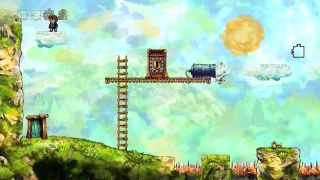
What better way to mask dark-hearted villainy than with a sweeping sense of whimsy? In the case of Jonathan Blow's Braid this diabolical bent extends far beyond the terrible actions of Tim. You see, even the gameplay itself bears something of a sadistic streak. Case in point - level 2-2, or 'the curious case of the cloud that just wouldn't budge'. Well, to be fair, it does actually shift, though at such an imperceptible crawl as to trick most players into ruling it out as an effective means of locomotion. So why exactly would you want to ride such a slowpoke? Well, as it turns out Blow and co. made it so that this granny-rapid gas ball provides the only means of reaching the game's most maliciously placed star. Now keep in mind that you don't actually need this item at all, though of course there's no accounting for the insatiable appetites of the completionist. All told, the player will need to wait two whole hours for this fluffy bugger to reach its destination. To be clear - that's two entire hours of your life in exchange for a pickup that anyone, of any skill level could also achieve. Methinks I smell a trolling.
The Stanley Parable rewards lapsed players
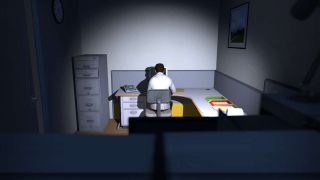
Everyone loves a dev team with a decent sense of humour. Praise be to the folks at Galactic Caf then, whose winning sense of humour even found its way into The Stanley Parable's achievement section. An achievement section that features such noteworthy accolades as 'You can't Jump' - which rewards players for trying anyway, and 'Click on Door 430 Five Times', which err - well, you probably get that one. Then there's 'Go Outside', an achievement that ensures that even avid gamers get their fair share of fresh air. To earn this trophy, players must stop playing the game for an entire 5-years. Play it, log off, and log back in a whopping 1826 days later. What could be simpler? Well, changing your computer's internal clock for one, but that's no fun now is it?
Sign up to the 12DOVE Newsletter
Weekly digests, tales from the communities you love, and more
Earthbound tests your patience

First things first: this particular section of Earthbound has you playing the role of a man named 'Poo'. Yes, yes - I know. You see it seems that good old Poo is trying his hardest to master the art of Mu meditation. To do so he'll need to ignore a series of increasingly tempting visions while doing precisely nothing. Seems simple, though neither the player nor Poo can be quite sure that these tempters aren't actually real people in need. This all continues until Poo enters a mysterious spirit world, wherein a strange spectre appears to torment him with various threats of mutilation. Hold your nerve and you'll complete your training unharmed. Intervene however, and it's all the way back to square one. Oddly enough, Earthbound actually features a second instance of similar inaction, whereby the player must stand motionless beside a waterfall for a full three minutes. Doing so will eventually unveil a gatekeeper asking the player for a password - or a swift slap to the face, depending on how many times you muck this one up.
Zelda: The Phantom Hourglass halts you to help you

Being the wholesome, family-friendly organisation that it is, many of Nintendo's games will occasionally prompt their players to set down their systems, unglue their eyes, and take a refreshing stroll out into the sun probably to buy some more Amiibo. But while many games will make an honest attempt to remind you of the world beyond your home, few among them will actually ask you to close up shop as part of the game itself. Then again, most games aren't part of the endlessly inventive Legend of Zelda series. In the case of the DS-exclusive Phantom Hourglass, this level of invention appears in the form of a classic key quest (with a twist). Said quest tasks Link with finding a way to affix a sacred crest to a seafaring chart. Sounds simple enough, and it is, provided you're able to think outside of the box. Simply highlight both bits - one on each screen - before shuttering your DS and reopening. Tada! Both elements have now magically bonded, and all because you took a breather. Good luck trying that one with an emulator...
Spec Ops: The Line doesn't want to be played
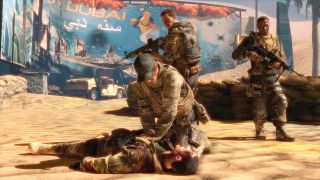
'Victory through inaction' is about as close to a catchphrase as the Spec Ops series is ever likely to get. If you were one of those fortunate enough to miss out on the first nine titles, then you truly were a winner. To say that these games were shoddy is an insult to true shoddiness. Then of course came The Line, team Yager's incisive spin on/total indictment of the modern military shooter. Here, 'the only way to win was not to play'. However, unlike earlier games in the franchise, this decision had absolutely nothing to do with the title's supposed lack of polish - just the opposite, in fact. You see, protagonist Captain Walker's aim is, if anything, a little too effective - a factor that permits both he and the player to continue on with their mission long after losing all effective and justifiable impetus for doing so. In short, the further the player progresses, the more needless the devastation unleashed. All with the game goading and openly mocking your bloodlust every step of the way. Well done, winner. You're a monster. You really should have stopped playing.
Battlefield 2142's Away bonus

Long before the Battlefield series spread to consoles, it had one of the most dedicated communities on PC. BF 1942 was one of the most played games of the time, but when EA and DICE released a futuristic sequel, Battlefield 2142, they handed out special points multipliers for every 24 hours the passionate fans didn't play the game. Of course, the official messaging on the feature focused more on assisting those that simply couldn't play the game as much as their competition. If jobs, or pets, or heart surgery distracted you from logging into Battlefield 2142, you would accrue an hour of Away bonus for every 24 hour period you weren't in the game, doubling the Career Points you'd earn in battle. Given that 2142 is the underplayed black sheep in the BF series, it seems like a lot of Away bonuses were earned by players before the servers were officially shut down on June 30, 2014.
Flower and Journeys weeklong break Trophies
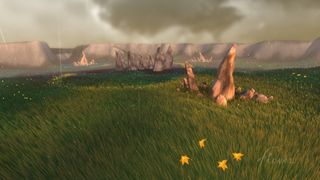
thatgamecompany is one of the more avant garde developers around, creating games that are as much about atmosphere as gameplay. As such, thatgamecompany wants players to soak in the artistic vibe of Flower and Journey at a slower pace, even encouraging them to step away from the game for seven days before resuming the adventure. This 'more casual' playstyle is incentivized via the most hardcore of the PS3's in-game tools, the Trophy. Flower's Welcome Back and Journey's corresponding Return are Bronze Trophies handed out for quitting the games for at least a week and then resuming your campaign. Those extra days away might give you enough time to truly deconstruct the themes and techniques of these thought-provoking games, putting those lessons to work in your own life. Or, if you're like most Trophy fanatics, you briefly pushed the system's internal clock forward by a week and immediately collected the Bronze, foregoing any transcendence.
Bravely Default's SP attacks
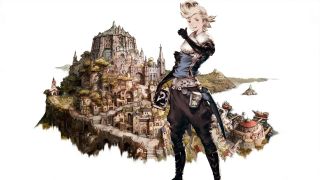
Bravely Default is Square Enix's return to form for the JRPG genre. Tropes like amnesiac teens, HP/MP, and world-powering crystals are all in full effect for the lovely throwback, but it also has some gameplay tricks that couldn't be done in 1992. For example, the new SP metric allows you to take extra actions during combat, which can turn the tide in a difficult battle. And you earn SP for having a good night's rest (kind of). SP stands for Sleep Points, which are collected for every eight hours that your game is in Sleep Mode when the 3DS is closed with the game on. That's enough time to get the doctor-recommended amount of rest or finish a full day's work at the office, all leaving you and your characters refreshed for when you return to Bravely. The only thing undercutting these good intentions is the fact you can also buy SP via micro-transactions. Paying for an SP Drink replenishes Sleep Points without the wait. If only we could spend money to avoid sleeping in real life. Or is that what caffeine is for?
Pokemon HeartGold/SoulSilver's Pokewalker
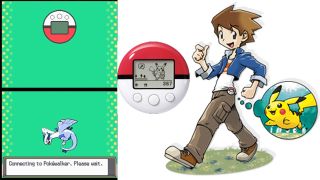
Nintendo games are notorious for continually hitting players with warnings about playing too much, with most games featuring at least one character that shows up to lecture you about taking a break. Pokemon has been known to engage in the same finger wagging as well, but the DS remakes of Gold and Silver didn't just tell kids to switch off their handhelds. The duo of games push Pokemaniacs to get their lazy butts into shape alongside their Pokemon. The Gold/Silver remakes come packed with the virtual pet-style Pokewalker. The circular, simple electronic device is shaped like a Pokeball, and you use it to temporarily take individual Pokemon out on a walk to collect experience and mildly uncommon items. Its a cute way to get slightly active via pocket monsters, but you can only gain a single level per trip, meaning its less time consuming to remain immobile and grind out XP in-game. Hmm... sounds awfully similar to Pokemon Go! now that I think about it.
Fable 2's rent accumulation
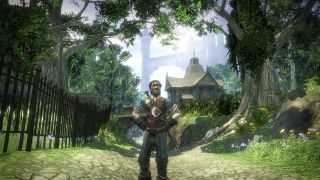
Fable 2 did a much better job than its predecessor with paying off its creator's lofty design dreams, and it includes a world so dense that you can buy property and collect rent from it while not even playing. You can step away from the game and know you'll have some cash waiting for you when you come back. The rent payments go into your coffers every five minutes you aren't playing Fable 2, and it can stack up for up to two months' worth of gold. Of course, this is vulnerable to the offline exploit of simply turning the system clock forward two months to collect the cash immediately. This is why we cant have nice things: the cash-for-not-playing aspect is missing from Fable 3's real estate.
Fire Emblem: Awakening replenishes the map every few hours
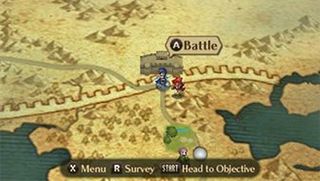
Surely Fire Emblem is too hardcore to tell you to walk away? Most FE entries are more likely to drop you into a gruelling, 45 minute battle, allow no saving during the permadeath conflict, then say, "Deal with it, loser". When 3DSs FE: Awakening rolled around, it softened some of its edges, including doling out rewards for stepping off the battlefield every now and then. Like most strategy RPGs, you can spend time levelling up your Awakening squad of knights and dragons in random battles that pop up on the map. But if you overdo it and kill off the few superfluous baddies dotting the map, they'll respawn as weaker and weaker pipsqueaks. Conversely, if you step away for a few hours, the map will be repopulated with dramatically more powerful opponents that drop better items and cash. Nice bonus and it also spreads an important message about the dangers of factory farming.
Continue the journey of enlightenment, ye patient gaming sage, by reading 11 healing items that would definitely kill you in real life
12DOVE was first founded in 1999, and since then has been dedicated to delivering video game-related news, reviews, previews, features, and more. Since late 2014, the website has been the online home of Total Film, SFX, Edge, and PLAY magazines, with comics site Newsarama joining the fold in 2020. Our aim as the global GamesRadar Staff team is to take you closer to the games, movies, TV shows, and comics that you love. We want to upgrade your downtime, and help you make the most of your time, money, and skills. We always aim to entertain, inform, and inspire through our mix of content - which includes news, reviews, features, tips, buying guides, and videos.
Most Popular






